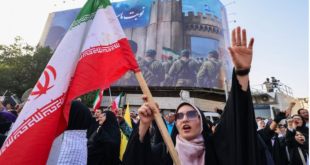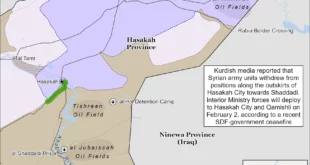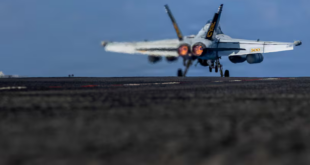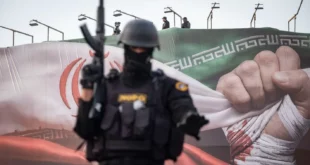VIENNA (AP) — Iran threatened the United States with “harm and pain” on Wednesday for its role in hauling Tehran before the UN Security Council over its nuclear programme.Washington in return warned that Tehran had enough nuclear material to make up to 10 atomic bombs, adding it was “time for the Security Council to act.” The defiant statements — at the close of a three-day meeting of the International Atomic Energy Agency in Vienna — added a new dimension to the confrontation between Iran and the United States, which has been the prime mover in a campaign to have Tehran brought before the Security Council over fears it wants to make nuclear arms.
IAEA chief Mohammad Baradei said his report on Iran’s nuclear programme would be sent to the Security Council within the next two days. The council — which has the power of imposing sanctions — will then deliberate on what measures it could take against Tehran.
Baradei’s report accuses Iran of withholding information, possessing plans linked to nuclear weapons and refusing to freeze uranium enrichment — a possible pathway to nuclear arms.
Still, the international community is divided on what steps, if any, to take against Tehran — and Russia on Wednesday openly questioned the merit of sanctions.
Asked if Russia — which has a veto on the council — would consider approving sanctions, Russian Foreign Minister Sergei Lavrov told reporters at the United Nations: “I don’t think sanctions as a means to solve a crisis have ever achieved a goal in the recent history.” But in comments to the IAEA board meeting, Gregory Schulte, the US delegate to the agency insisted “the time has now come for the Security Council to act.” He cited Iran’s decision to curtail agency inspections, its expanding uranium enrichment programme and IAEA inspectors’ suggestions of past interest in nuclear arms as contributing to “mounting international concerns” about Tehran’s nuclear intentions.
“Iran has still not come clean,” he said, listing Tehran’s possession of plans that could only be used to make nuclear warheads, links between its nuclear programmes and the military and its determination to develop a large-scale enrichment programme.
“IAEA inspectors have no doubt this information was expressly intended for the fabrication of nuclear weapons components,” said Schulte. He said that the 85 tonnes of feedstock uranium gas already produced by Iran “if enriched could produce enough material for about 10 nuclear weapons.” Separately, France, Germany and Britain warned that what is known about Iran’s enrichment programme could represent only “the tip of the iceberg.” Iran reacted angrily to Washington’s role in the diplomatic standoff over its nuclear ambitions.
“The United States has the power to cause harm and pain,” said Ali Asghar Soltanieh, a senior member of the Iranian delegation to the IAEA. “But the United States is also susceptible to harm and pain. So if that is the path that the US wishes to choose, let the ball roll.”
It attacked the “warmongers in Washington” for what it said was an unjust accusation that Tehran’s nuclear intentions were mainly for military use.
The Iranian statement to the Vienna meeting did not elaborate, but diplomats said it could be interpreted as a veiled threat to use oil as a weapon. Iran is the second-largest producer within the Organisation of Petroleum Exporting Countries.
The White House dismissed Iran’s threats.
“I think that provocative statements and actions only further isolate Iran from the rest of the world,” White House press secretary Scott McClellan told reporters travelling with President George W. Bush.
The US ambassador to the United Nations said the comments reflected the menace posed by Iran.
“Their threats show why leaving a country like that with a nuclear weapon is so dangerous,” John Bolton told the Associated Press by phone from Washington. He classified the Iranian comments as “reflecting their determination to acquire weapons.” But Baradei said the Security Council was part of the diplomatic process designed to bring Iran back to negotiations.
He suggested Washington may need to talk to Tehran directly if negotiations reach the stage of focusing on security guarantees to Tehran in exchange for it making concessions on its nuclear programme.
“Once we start to discuss security issues my personal view [is] that at one point the US should also be engaged into a dialogue,” Baradei said after the board meeting ended.
Tehran and Washington broke diplomatic relations shortly after Iranian radicals seized the US Embassy and took diplomats there hostage in 1979. While the United States has swung support behind negotiations with Iran conducted in recent months by Russia and France, Britain and Germany, it has refused direct contacts.
Under a January agreement, the United States, Russia, China, France and Britain — the five permanent council members — decided to delay any Security Council action until Baradei’s report was received.
The delay was demanded by Moscow and Beijing, who have economic and political ties with Tehran.
 Eurasia Press & News
Eurasia Press & News



